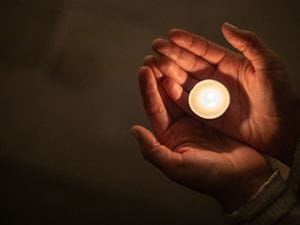
At the beginning of last year, I predicted the Pope would be big news in 2023.
While I thought it would be because of his declining health and increased age, it turned out that Pope Francis had big plans to cement his long-term hopes for renewal, which are likely to outlast his pontifical reign.
In 2023, Pope Francis remained busy, traveling widely, convening a historic synod, denouncing anti-LGBTQ+ laws and approving letting priests bless same-sex couples, overseeing the Vatican repudiation of the Doctrine of Discovery and facing various controversies.
For all the above, he was named 2023’s Top Religion Newsmaker by members of the Religion News Association, a 74-year-old association for reporters who cover religion in the news media.
Beyond Francis and the Vatican, there were other major headlines in 2023: the Israel-Hamas war, along with the rise in antisemitic and Islamophobic incidents in the U.S. and around the globe, ongoing legislative and legal battles following last year's Supreme Court ruling overturning Roe v. Wade, the exodus of thousands of congregations from the United Methodist Church and the nationwide political debates over sexuality and transgender rights and the Anglican Communion verging on schism.
While it is one thing to look back on the top religion stories of the year, what about predicting — as I did with the Pope — what will be the big religion news in 2024?
Tomorrow’s religion news, today
In 2024, we will see ongoing wars in places like Gaza, Ukraine, Yemen and Nargono-Karabakh continuing to capture headlines. So too the state of antisemitism and anti-Muslim discrimination. The ubiquity and uncertainty of artificial intelligence should also be on our radars, as should news related to the intersections of spirituality and climate change, the fate of global economies and how religious communities adapt to the ruptures and realignments associated with an increasingly multipolar world.
The biggest religion news of the coming year, I believe, will be related to elections. And I am not just talking about the U.S., but elections all over the world, in countries accounting for more than half of the global population (4.2 billion people). That is more voters than ever before in a single year and will not only put a spotlight on the state of democracy around the world, but the role religion has to play in people's choices for who will govern their nation and guide their society for the foreseeable future.
Starting with Taiwan in January and running through the U.S. presidential election in November, it will be the biggest election year in history. Countries that will be electing new leaders this year, and which have distinct religion angles for reporters to consider covering, also include Indonesia (Feb 14), Russia (March 17), India (April), South Africa (TBC), the United Kingdom (May) and the European Union (June 6).
In the U.S., the major electoral issues are lined with multiple religion angles: the economy, immigration, abortion rights, climate change, crime and the so-called "culture wars."
Despite a decline in organized religion in the U.S. and around the world, religion continues to impact various aspects of daily life and social, political and cultural orders.
Religion will do what it always does
And although the particular contours of the coming year’s religion news will be notable for their nuance and potentially era-defining characteristics, students of religion will note that in 2024, religion will do what it always does.
Religion will continue to create collective identifications and provide orientation for those feeling adrift in a world of chaos and uncertainty — as it did last year amidst the tumult and terror of the Israel-Hamas war.
Religion will continue to help communities confront suffering and form social bonds — as it did in the wake of a shooting at El Ghriba synagogue in Tunisia or as ethnic Muslim groups like the Uyghur, Tibetan Buddhists and Rohingya Muslim refugees in Bangladesh and Myanmar suffer severe and systematic human-rights violations.
Religion will continue to be a source of, and salve for, othering and conflict — as in conflicts in Ukraine and Nagorno-Karabakh or between predominately Christian Kukis and mostly Hindu Meiteis in Manipur, India.
Religion will continue to guide migrants and others on the move across borders and boundaries — as it does for those traversing the Sahara Desert and Mediterranean Sea on their way toward Europe or those risking the Migrant Trail through Central America and crossing the wilderness of the U.S./Mexico borderlands.
Religion will continue to foster meaning and power — as it does for climate activists championing the protection of rainforests or divestment from fossil fuels.
Religion will continue to conserve the past and transform the future — as it did, on the one hand, for more than 6,000 congregations that left the United Methodist Church over a widening schism over theology and the role of LGBTQ congregants or, on the other hand, for demonstrators in Nicaragua, Iran, Israel and across the U.S. advocating for change in government policies or protesting against injustice.
Continue to question
Indeed, as this Featured Writer column enters its third year, religion will continue to do what it always does.
Likewise, students of religion will continue to consider the ways humans have created traditions, concocted beliefs, and crafted the very notion of “religion” itself. Whether we are analyzing the way religion intersects and interacts with sport and entertainment or how major festivals and customs are infused with social, political and cultural meaning and power, “What You Missed Without Religion Class” will continue to delve into the following three questions in 2024:
• How do we study religion?
• Why do we consider certain things “religious” and others not?
• How does our definition of religion shape the world we live and the ways we engage with it?
I look forward to exploring all these inquiries with you in the year to come and seeing if — yet again — the Pope will be at the forefront of those provoking us to consider how religion remains a potent force in the world.
1/9/2024 5:13:57 AM





